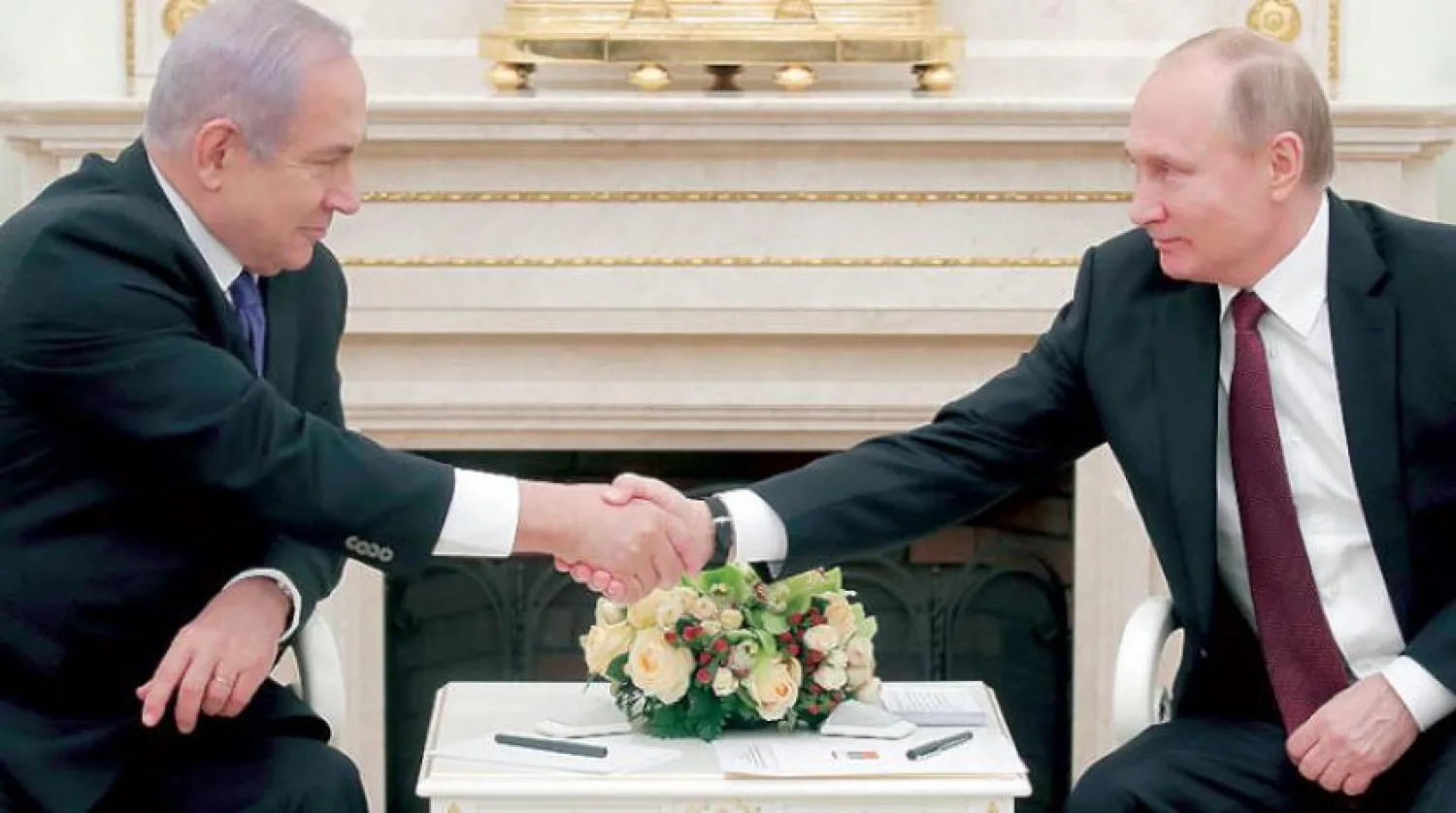Israeli Prime Minister Benjamin Netanyahu arrived in Moscow on a brief working visit to hold intensive talks with Russian President Vladimir Putin on Syria.
Talks are expected to tackle a number of outstanding issues and include contacts with parties directly involved in this crisis.
The Kremlin said Russia is ready to discuss Israel’s plan on Syrian settlement, adding that it will be preparing to receive Turkish President Recep Tayyip Erdogan next Monday, will focus on complex files, including the situation in Idlib, and the plan to establish a safe zone north Syria.
Kremlin spokesman Dmitry Peskov said the visit will include a brief meeting for the two leaders to “compare notes.”
Media expected talks to focus on mechanisms to strengthen coordination, especially in the field of military communications in Syria in light with recent Israeli strikes on sites in Aleppo and the emergence of leaks about an “Israeli plan” to develop the political settlement in the next stage.
Among Netanyahu’s goals to push forward talks with Moscow are boosting his position internally in light of his preparations for elections, noted Russia’s Kommersant newspaper.
“Netanyahu would not have come to Moscow now unless he bets on successful negotiations that would provide him with a push in the elections,” it quoted Israeli sources as saying.
“Since the beginning of Russia’s military operation, Moscow has turned a blind eye to Israeli actions in Syrian skies,” sources added.
Israel and Russia maintain a hotline to prevent their air forces from clashing over Syria. Syrian forces downed a Russian warplane in September while responding to an Israeli air strike.
Deputy Foreign Minister and Special Presidential Representative for the Middle East and Africa Mikhail Bogdanov, for his part, announced that extensive dialogues will be held within days with Damascus, Tehran, and Ankara to resolve the formation of the Constitutional Committee.









